The Assault on Labor
The Assault on Labor
The 1986 TWA Strike and the Decline of Workers Rights in America
Sandra L. Albrecht
Lexington Books
Lanham Boulder New York London
Published by Lexington Books
An imprint of The Rowman & Littlefield Publishing Group, Inc.
4501 Forbes Boulevard, Suite 200, Lanham, Maryland 20706
www.rowman.com
Unit A, Whitacre Mews, 26-34 Stannary Street, London SE11 4AB
Copyright 2017 by Lexington Books
All rights reserved . No part of this book may be reproduced in any form or by any electronic or mechanical means, including information storage and retrieval systems, without written permission from the publisher, except by a reviewer who may quote passages in a review.
British Library Cataloguing in Publication Information Available
Library of Congress Cataloging-in-Publication Data Available
ISBN 978-1-4985-3770-4 (cloth: alk. paper)
ISBN 978-1-4985-3771-1 (electronic)
 The paper used in this publication meets the minimum requirements of American National Standard for Information SciencesPermanence of Paper for Printed Library Materials, ANSI/NISO Z39.48-1992.
The paper used in this publication meets the minimum requirements of American National Standard for Information SciencesPermanence of Paper for Printed Library Materials, ANSI/NISO Z39.48-1992.
Printed in the United States of America
To my daughter, Molly
Contents
I want to thank the Independent Federation of Flight Attendants for giving me the opportunity to share their story. This book is for the full-term strikers who stood up against unjust treatment and waged a fierce battle against permanent replacement to regain their jobs. I want to sincerely thank all the flight attendants who spoke with me and relayed their experiences. I could not have written this book without the help of Mary Ellen Miller, Director of Safety, Legislation and Communication. She was generous with her time, supplied me with mountains of documents and publications, helped me gain access to meetings and interviews, and is responsible for the vast majority of archival photos that appear in the book. I also want to thank Vicki Frankovich-Gray, president during the strike and its aftermath, for meeting with me despite multiple demands and a schedule already too busy. I spent time in the law office of Jolley, Walsh, Hager and Gordon, now Jolley, Walsh, Hurley and Raisher, reading transcripts and court documents. I thank everyone for being so nice and accommodating, and, in particular, Bill Jolley. He was extremely helpful to me in understanding the large number of court cases and was open to my many questions.
Thank you to Elinor Schroeder in the KU School of Law for allowing me to immerse myself in the study of labor law. Attending her classes and meeting with her gave me a better understanding of the legal dimensions of my study. Through a Keeler Family Intra-university Professorship, I spent an invaluable semester guided by her expertise. I also want to acknowledge Joane Nagel for reading my book prospectus and the anonymous reviewers of my manuscript whose thoughtful comments greatly improved my final book. I want to thank the editorial staff that I have had the pleasure of working with from assistant editor, Brighid Stone, to associate acquisitions editor, Sarah Craig, and assistant editor, Bethany Davis.
I want to give recognition to my mentors, Judy Corder and Steven Deutsch, who graciously became lifelong friends. Many thanks to Bonnie Buchele and Sara Gutierres who have sustained me in more ways than I can count or ever repay. I am grateful for my goddaughter, Isabel, whose exuberant joy reminds me on a weekly basis of everything that is important. I am also grateful for Maddie, the canine diva of our household, who unexpectedly and cheerfully turned into my loyal sidekick in the final stages of writing. Most importantly, I want to thank my daughter, Molly, for always being my biggest supporter and my greatest inspiration.
One of the challenges in working with a variety of different primary sources, e.g., union and company publications, multiple forms of court documentation, taped phone messages, audiocassettes and videos, was that there was no uniformity in how words were spelled and how they were used. I did not alter any quoted material, but in my own writing, I made some judgment calls to create as much consistency as possible.
There were three major unions at TWA which I wrote about, in order of frequency: Independent Federation of Flight Attendants (IFFA), International Association of Machinists and Aerospace Workers (IAM), and Airline Pilots Association (ALPA). The Independent Federation of Flight Attendants always referred to themselves as IFFA, not the IFFA, and I adopted that style for all three unions. This style was typically not a problem for ALPA, but in many of the primary sources, IAM is referred to as the IAM.
The spelling of words, primarily dealing with negotiations and contracts, also varied among the primary documents. For my own writing, I chose the spelling that seemed to represent the majority way: two-tier; self-help; buyout; and snap-back.
With a few exceptions, when I first introduced someone, I would use his/her whole name and position. After that, I would use only their last name.
For organized labor, the decade of the 1980s was one of heightened conflict between labor and management. These struggles pierced the very core of the American Labor Movement and resulted in declines in both the overall membership and the political-economic strength of labor. The social contract between labor and management that had brought fairly cooperative labor relations in the postWorld War II era broke down and was replaced by highly conflictual relations much more reminiscent of the 1930s labor struggles. Early in the 1980s, the Professional Air Traffic Controllers Organization (PATCO) air controllers strike was defeated by President Reagans swift firing of 12,000 strikers. Although Reagan directed his action against a public sector union, the message of hard times for labor was not lost on the private industrial and service sectors.
Reagans action against PATCO was part of the rapidly changing airline industry landscape. In the competitive environment of post-1978 deregulation, the airline industry was characterized by a proliferation of new entrants into the market, successive waves of fare wars, corporate raiding and takeovers, and multiple stages of realignment of the industry. These changes in the airline industry had a dramatic impact on labor. Known for their high level of union organization, airline industry workers faced declining wages, job loss, union decertifications, and elimination through the use of bankruptcy laws. Workers responded by concessionary bargaining, legal suits, and strikes in attempts to both secure their jobs and preserve their unions.
In the airline industry, and industries throughout the United States, employers increasingly utilized permanent replacement of strikers, giving the 1980s the reputation as arguably the bleakest decade in the entire history of the U.S. labor movement. Even though the right of employers to permanently replace strikers dates back to the 1938 Mackay Doctrine, it was only in the latter 1970s and in the 1980s that it became common for employers to either threaten, or carry out, permanent replacement. The line between permanent replacement and unemployment is so thin as to question whether labors fundamental right to strike remains viable.
The 1986 strike by The Independent Federation of Flight Attendants against Trans World Airlines (TWA) provides one of the most dramatic cases of the heightened labor conflict of the 1980s. Under TWAs new owner, Carl Icahn, and faced with a concessionary package that they saw as unfair and unnecessarily harsh, 6,500 flight attendants went out on strike at midnight on March 7, 1986. Throughout the strike, IFFA membership support remained exceptionally strong, both contrary to the expectations of TWA and in a climate of increasingly worsened conditions. TWA had started making preparations to hire permanent replacements prior to the strike, and as Icahn reportedly said on the eve of the strike, if you leave, you are never coming back. Because of the mounting threat that there would be no jobs to return to, IFFA made an unconditional offer to return to work on May 17, 1986. By that time, TWA had replaced virtually the entire labor force of predominantly female, senior flight attendants. Fewer than 200 positions were made available to the full-term strikers. It would take IFFA over three years, July 1989, to successfully return over 5,000 strikers back to work.
Next page
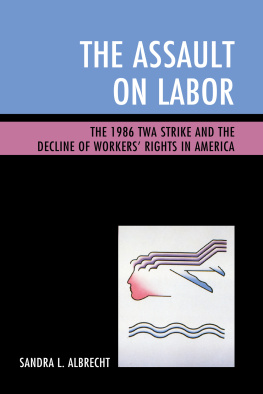
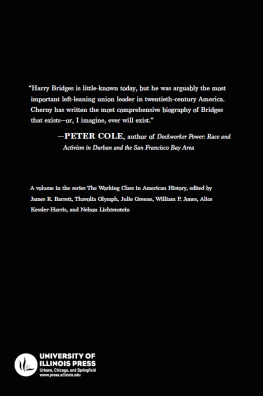

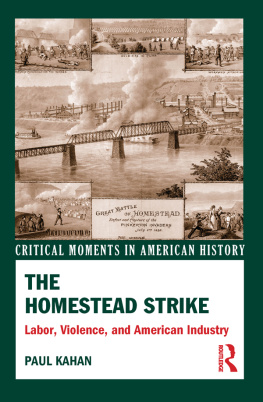
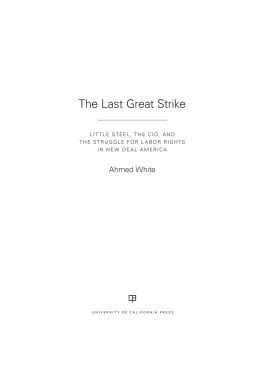
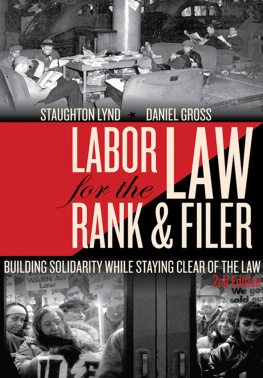
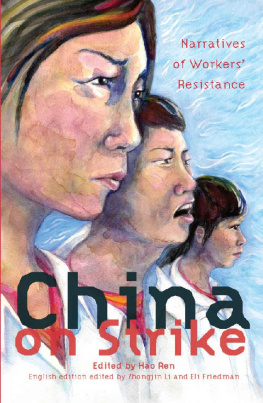

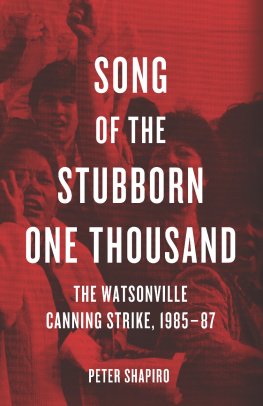
 The paper used in this publication meets the minimum requirements of American National Standard for Information SciencesPermanence of Paper for Printed Library Materials, ANSI/NISO Z39.48-1992.
The paper used in this publication meets the minimum requirements of American National Standard for Information SciencesPermanence of Paper for Printed Library Materials, ANSI/NISO Z39.48-1992.